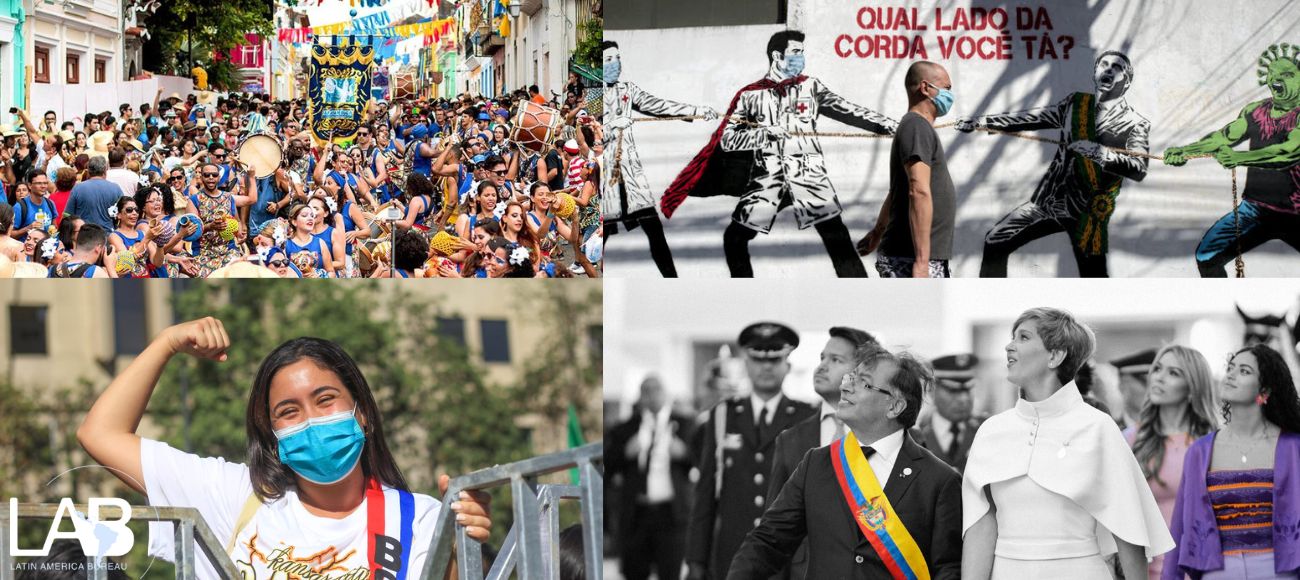Fondo, directed by Alejandro Bercovich, Argentina, 2019
The complete film can be viewed from this link.
Alejandro Bercovich’s documentary-critique Fondo starts with what looks like a slick, modern and engaging advertisement. ‘Countries of the world working together for the good of all’, it declares. This, however, is not Alejandro Bercovich’s own work, but a commercial for the International Monetary Fund. Quickly, the colourful depictions of construction sites, modernist skyscrapers and smiling people in business outfits are replaced by footage of Argentine ex-president Mauricio Macri announcing in 2018 that Argentina will take yet another IMF loan.
Argentina, as Bercovich’s film reminds its viewers, has a long and tumultuous history with the IMF. Starting in the late 1950s, IMF loans and the attached conditions have accompanied and structured the country’s economic policies. Not least, they resulted, after the end of the military dictatorship, in the explosion of Argentina’s external debt and the implementation of far-reaching structural adjustment policies that earned the country accolades as ‘IMF star pupil’ of the 1990s – and which led inexorably to the country’s economic and political breakdown in 2001.
But this documentary does much more than recapitulate Argentina’s entanglements with the IMF. It retraces the history of the fund, explains the underlying principles and theoretical foundations of structural adjustment and its consequences for people’s everyday life. It links the Argentine example to those of two other countries, Greece and Portugal, and bluntly argues: the IMF applies the same recipe to all, despite the differences in national and economic contexts. Although the precise effects of structural adjustment differ, it rarely seems to bring the promised results.
To illustrate his point, economist and lecturer Bercovich draws on an astonishingly diverse register. He combines lecture-style explanations of basic economic theory with historic footage, interviews with economic experts, politicians and (ex-)IMF functionaries in Argentina, Greece, Portugal and the United States, as well as with Greek and Portuguese pensioners, primary school teachers and artists.
Cooking up a storm
This wide variety of interviewees shows the human effects of economic policy and helps the user connect on a personal level, reminding them that these are human beings, not mere statistics. This footage is interweaved with kitchen scenes that feature Bercovich himself and chief cook Juan Braceli who cook three traditional dishes: an Argentine guiso, a Greek moussaka and a Portuguese caldeirada. Sticking to the cooking-analogy, Bercovich succeeds in giving an ironic and entertaining touch to his critical review of the IMF’s one-recipe- fits-all approach.
A strong component of the film is its cinematographic qualities. In addition to the narrative of culinary adventure, Bercovich uses short comic sketches to deconstruct the often deliberately confusing jargon of economic language. The use of lunfardo, the slang of the Greater Buenos Aires urban area, adds to the enjoyment, sometimes adding a touch of humour. This is where the true strengths of the film lie.
Fondo formulates a strong critique of the influence that the IMF, and more generally US-American investment funds, hold over their debtors’ national politics. It highlights the discrepancy between an official discourse that displays the historically conscious and progressively changing approach of the IMF, including a stronger social focus, and the striking conservative continuity of the measures implemented. The documentary includes people’s own descriptions of their everyday experience of austerity politics: shortfalls in pensions, wages and welfare, precarious working conditions and an increasingly imbalanced distribution of wealth in their societies.
Bercovich aims to link the local Argentine example to global processes, yet his choice of country examples is intriguing. The omission of Africa, for instance, reduces the global scope of his historic tour de force. Eschewing the usual North-South and donor-debtor dichotomies, he chooses to focus on Greece and Portugal. Thus he draws closer together ‘South’ and ‘North’ by exploring the different, yet shared, experiences of countries in both regions.
No specific solutions are proposed. Certainly, the Portuguese example opens space for alternatives as it shows that governments might decide against austerity politics and be rewarded with positive economic effects. However, it remains an open question how alterative economic orders and global redistribution could be put into practice and where to source the funds that might help the drained Argentine economy recover.
This does not diminish the intensity and meaningfulness of Fondo, which can be recommended for all those interested in global economic politics, older and newer varieties of structural adjustment, and as a teaching resource. It is freely available for streaming.
The film concludes with a final culinary scene: ‘You stuck to the recipe, the guiso gets burnt and afterwards it’s your fault!’ A metaphor that symbolizes very well the essence of Argentina’s repeated experiences with the IMF. The producer decides to leave his pot behind and, instead, eats a guiso in a popular soup kitchen – thus ending his careful and artistically crafted on a note of solidarity and redistribution.

